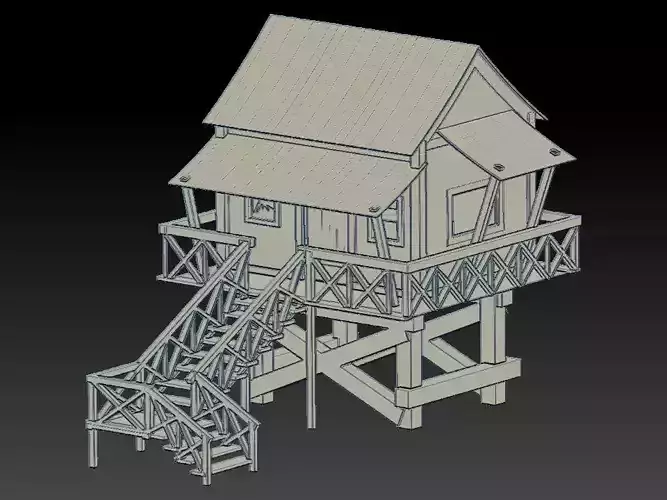1/21
A cottage is, typically, a small house. It may carry the connotation of being an old or old-fashioned building. In modern usage, a cottage is usually a modest, often cosy dwelling, typically in a rural or semi-rural location. The cottage orné, often quite large and grand residences built by the nobility, dates back to a movement of rustic stylised cottages of the late 18th and early 19th century during the Romantic movement.
In British English the term now denotes a small dwelling of traditional build, although it can also be applied to modern construction designed to resemble traditional houses (mock cottages). Cottages may be detached houses, or terraced, such as those built to house workers in mining villages. The tied accommodation provided to farm workers was usually a cottage, see cottage garden. In England the term holiday cottage now denotes a specialised form of residential let property, attracting various tax-benefits to the owner.
The holiday cottage exists in many cultures under different names. In American English, cottage is one term for such holiday homes, although they may also be called a cabin, chalet, or even camp. In certain countries (e.g. Scandinavia, Baltics, and Russia) the term cottage has local synonyms: In Finnish mökki, in Estonian suvila, in Swedish stuga, in Norwegian hytte (from the German word Hütte), in Czech chalupa, in Russian дача (dacha, which can refer to a vacation/summer home, often located near a body of water).
There are cottage-style dwellings in American cities that were built primarily for the purpose of housing slaves.
REVIEWS & COMMENTS
accuracy, and usability.





















